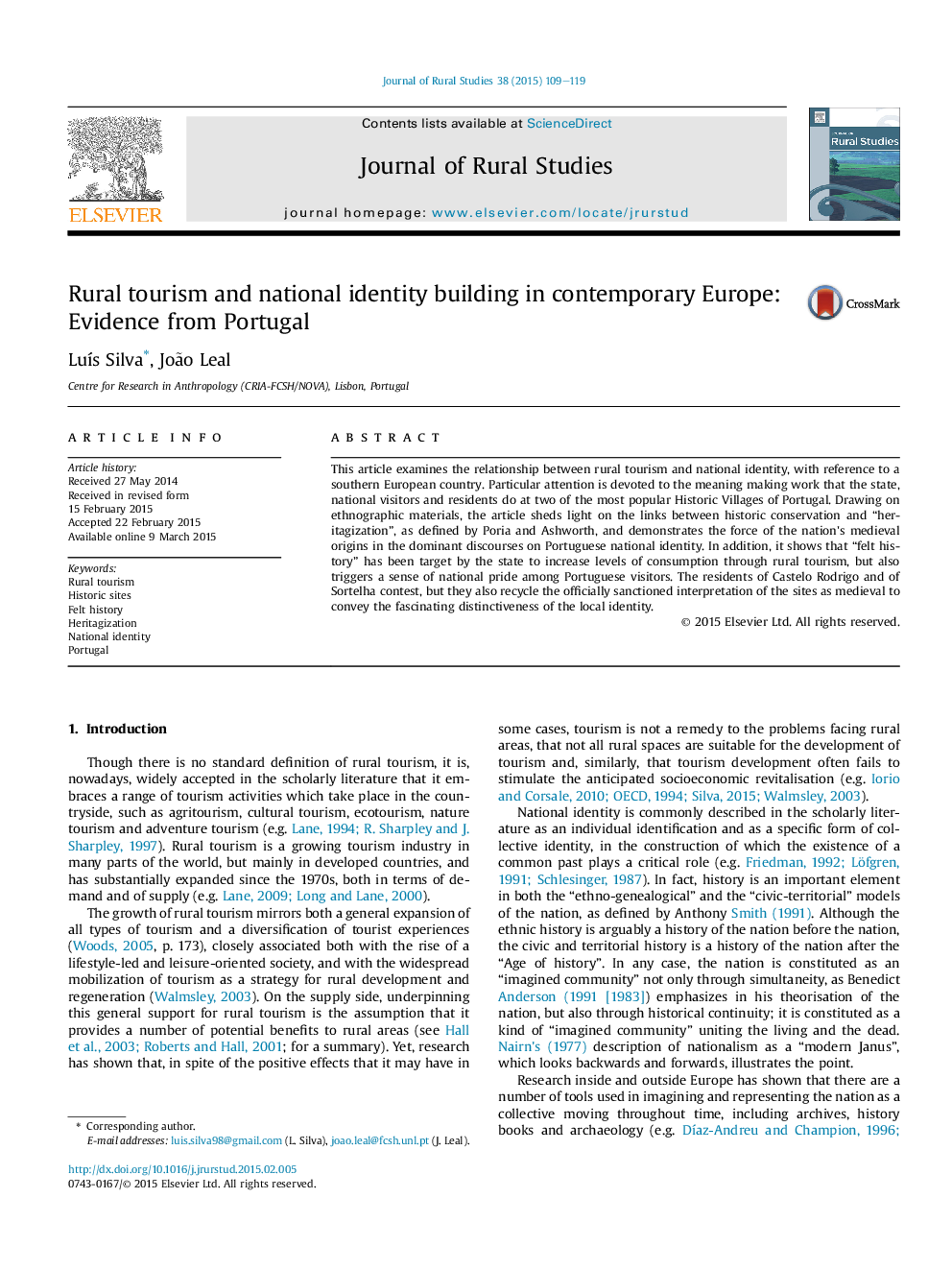| Article ID | Journal | Published Year | Pages | File Type |
|---|---|---|---|---|
| 92464 | Journal of Rural Studies | 2015 | 11 Pages |
•This article explores the links between rural tourism and national identity.•Medievalism is a critical point in discourses on Portuguese national identity.•“Felt history” is target and triggers national pride among Portuguese visitors.•Residents contest the official text, but they also recycle it to convey local identity.•The argument is illustrated through two ethnographic case studies.
This article examines the relationship between rural tourism and national identity, with reference to a southern European country. Particular attention is devoted to the meaning making work that the state, national visitors and residents do at two of the most popular Historic Villages of Portugal. Drawing on ethnographic materials, the article sheds light on the links between historic conservation and “heritagization”, as defined by Poria and Ashworth, and demonstrates the force of the nation's medieval origins in the dominant discourses on Portuguese national identity. In addition, it shows that “felt history” has been target by the state to increase levels of consumption through rural tourism, but also triggers a sense of national pride among Portuguese visitors. The residents of Castelo Rodrigo and of Sortelha contest, but they also recycle the officially sanctioned interpretation of the sites as medieval to convey the fascinating distinctiveness of the local identity.
